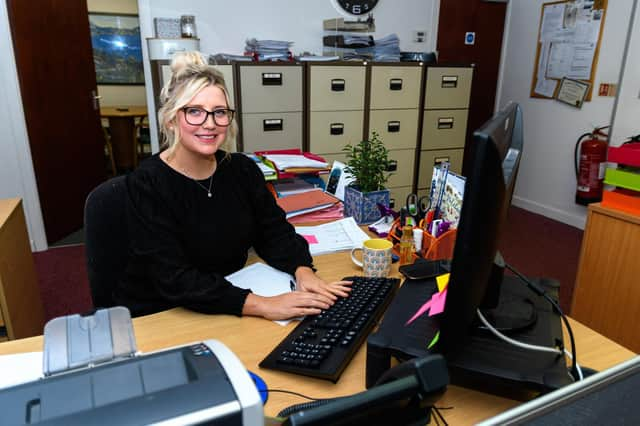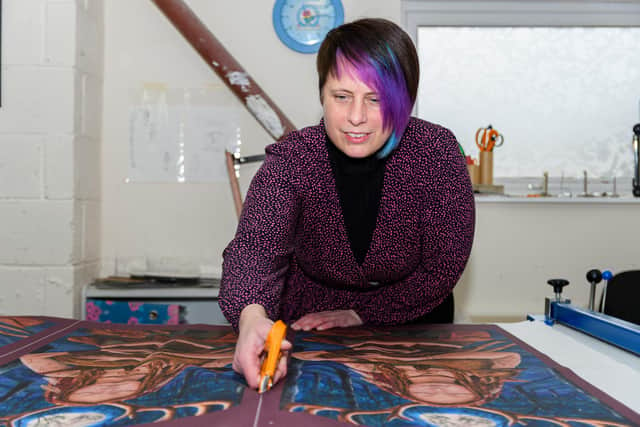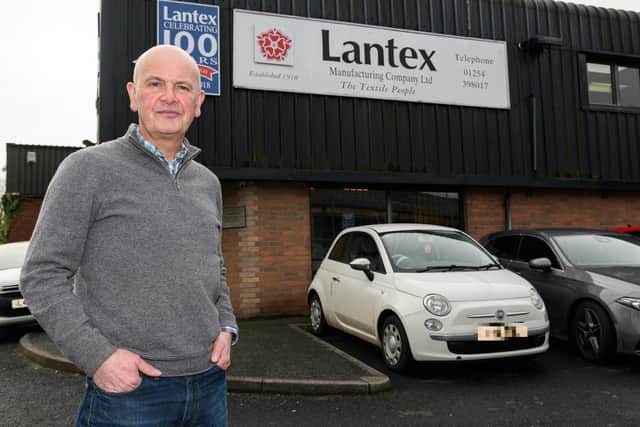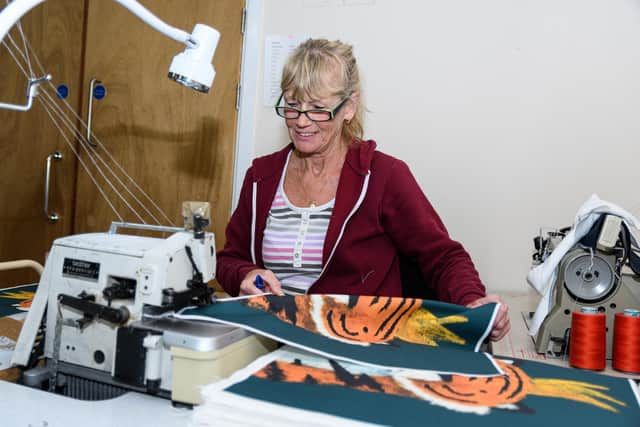Lantex: 104-year-old textile manufacturer where industrial Lancashire heritage meets 21st century tech
This article contains affiliate links. We may earn a small commission on items purchased through this article, but that does not affect our editorial judgement.


The Accrington textile manufacturer makes everything from tea towels, tablecloths, and aprons to oven gloves, bags, and cushions and has worked with the BBC, ITV, Channel 4, Disney, The National Trust, The Inn at Whitewell, England Rugby, The Ritz Calton, Aga, Virgin, and John Lewis. Enough said.
Founded in 1918 in the birthplace of the Industrial Revolution, Lantex is one of the North West’s premier producers of bespoke textiles, blending old-school tradition with modern tech under Managing Director designate Tim Daverage, who has worked in the industry for 32 years.
Advertisement
Hide AdAdvertisement
Hide Ad“Given the textile history in Lancashire, my first responsibility is to make sure we’re around for another 104 years,” says Tim, who has worked at Lantex since 2014. “We’ve always been a very traditional company which does very good work, so my role has been to bring in new tech so that we can focus on turning ourselves into a really modern company as well.”


Two years ago, Lantex took part in Edge Hill University’s Innovation Sprint Programme, an EU-funded programme where experts advised companies on how to eradicate pain points and maximise potential. Following that, Tim was put in contact with a tech adoption programme Made Smarter which focuses on efficiency.
With the fashion industry responsible for an estimated 10% of global carbon emissions and some 300,000 tonnes of clothing worth £140m sent to landfill or incinerators in the UK, new tech such as digital textile printing is crucial in moving away from less efficient traditional methods. The name of the game is less waste.
“The textile industry in the North West was at the centre of the Industrial Revolution,” says Alain Dilworth, North West Adoption Programme Manager at Made Smarter. “Technological advances enabled cottons, wools, silks and dyestuffs to be produced at unprecedented rates for export around the globe.
Advertisement
Hide AdAdvertisement
Hide Ad“It’s fitting that Made Smarter is now offering support to embrace the opportunity to lead the fourth industrial revolution,” he adds. “Covid-19 has had a huge impact on the industry. Rebuilding is an opportunity to create a more sustainable approach, enabling better resilience by taking advantage of the new digital tech.”


“The UK fashion and textile industry has a worldwide reputation for originality, quality, and innovation, combining skilled design and craftsmanship with cutting-edge technology,” comments Adam Mansell, CEO of the UK Fashion and Textile Association (UKFT). “To continue building on this and ensure the UK remains competitive against global competition, manufacturers need to embrace tech, as well as to raise the skills and productivity of the people who work in our sector to the highest level.”
The pandemic, however, has been hard. According to Tim, Lantex - which has 25 employees - lost a quarter of its revenue in the 2020/21 financial year due to Covid. But, thankfully, things are starting to look brighter.
“Lantex is a great place to work and I think that vibe has been stronger after Covid because of how well we adapted,” says Tim, 54, who lives in Holcombe Brook. “Our priority was to look after staff and, while it was difficult, we cracked on. Like all businesses, we were propped up by grants, but we also explored different markets.
Advertisement
Hide AdAdvertisement
Hide Ad“That’s shown us the importance of diversity and not being concentrated on a singular market,” he adds. “For example, as the promotion and entertainment market dropped off, our mail-order business picked up. We’re a small business, but we’ve bounced back and, despite negatives like inflation and slight import issues, it’s onwards and upwards for 2022.


“I really enjoy the work because I feel we’re on the verge of something exciting and the only problem is that you wish you had more hours in the day!” Tim says. “And, as always, the most important thing is looking after the staff because we’ve got a great bunch.”